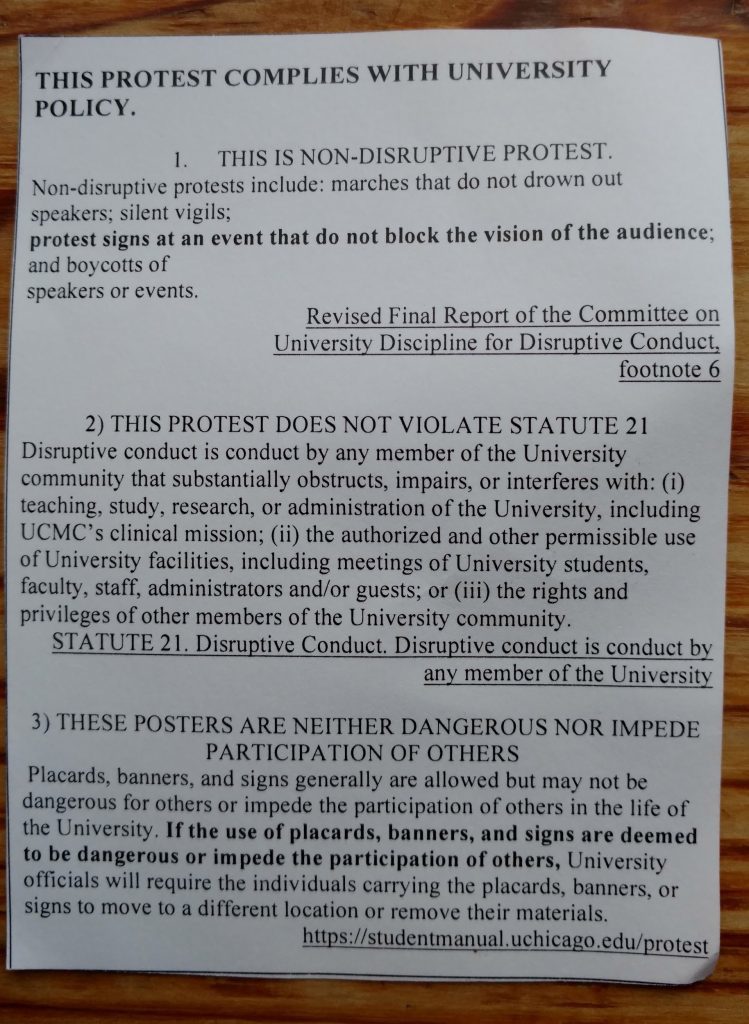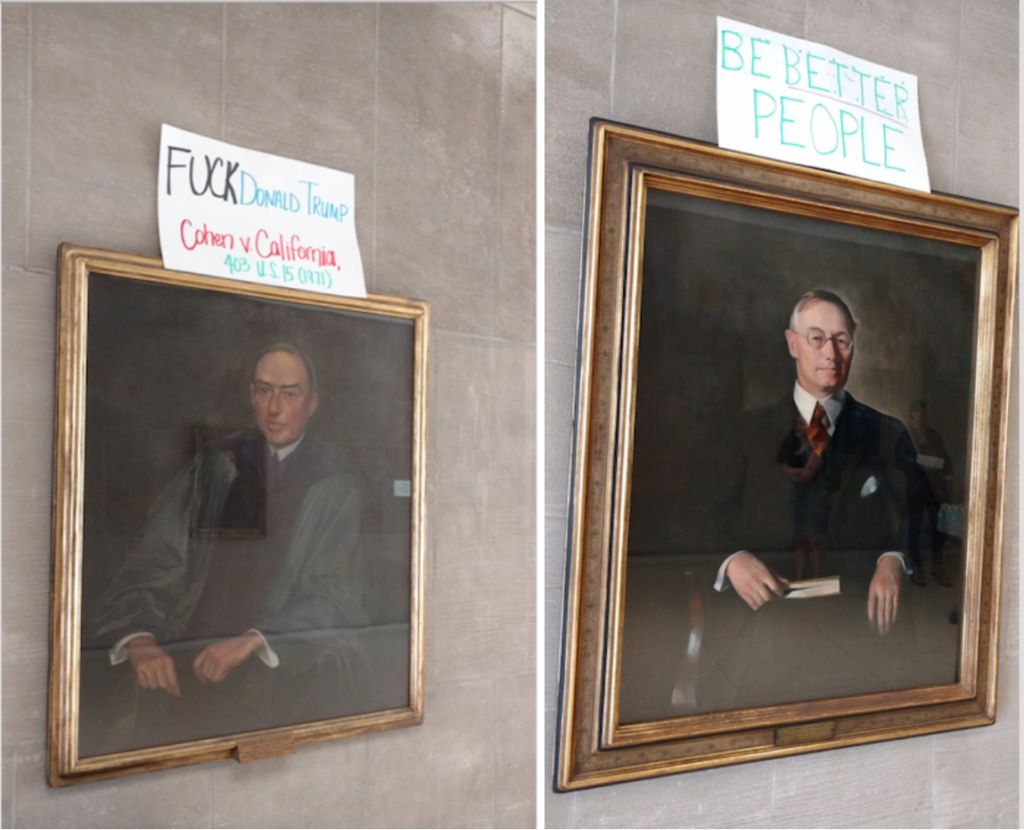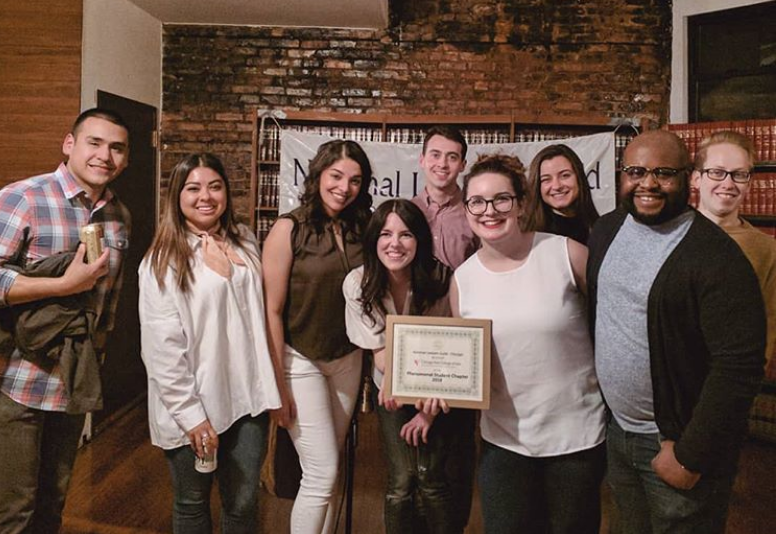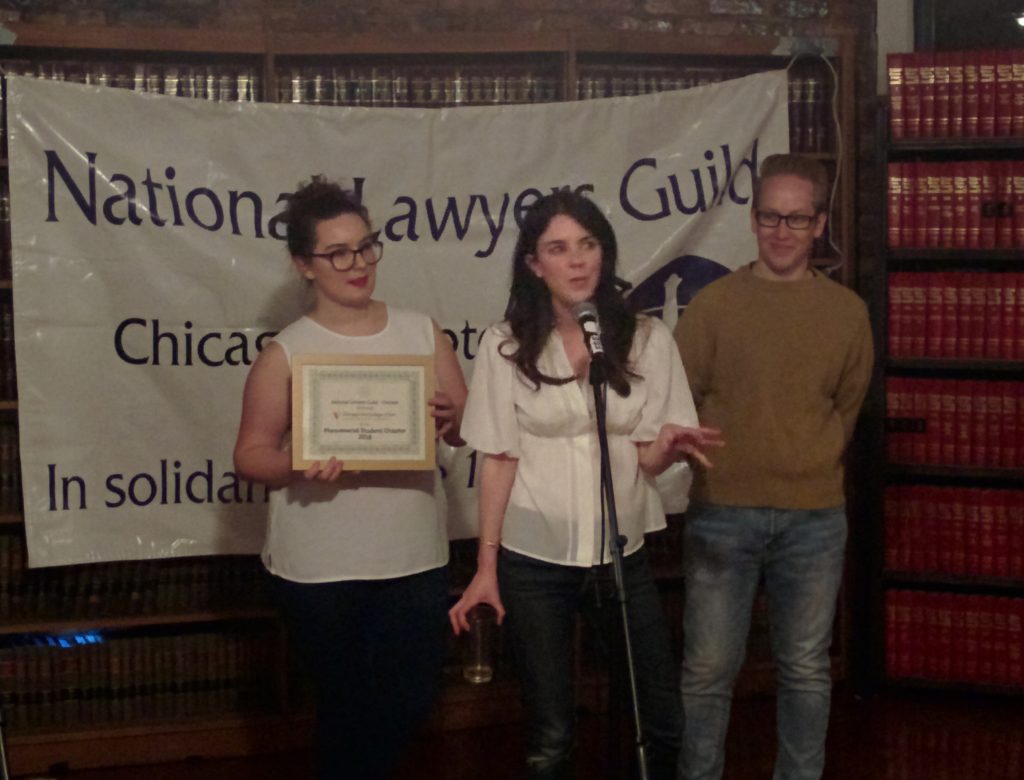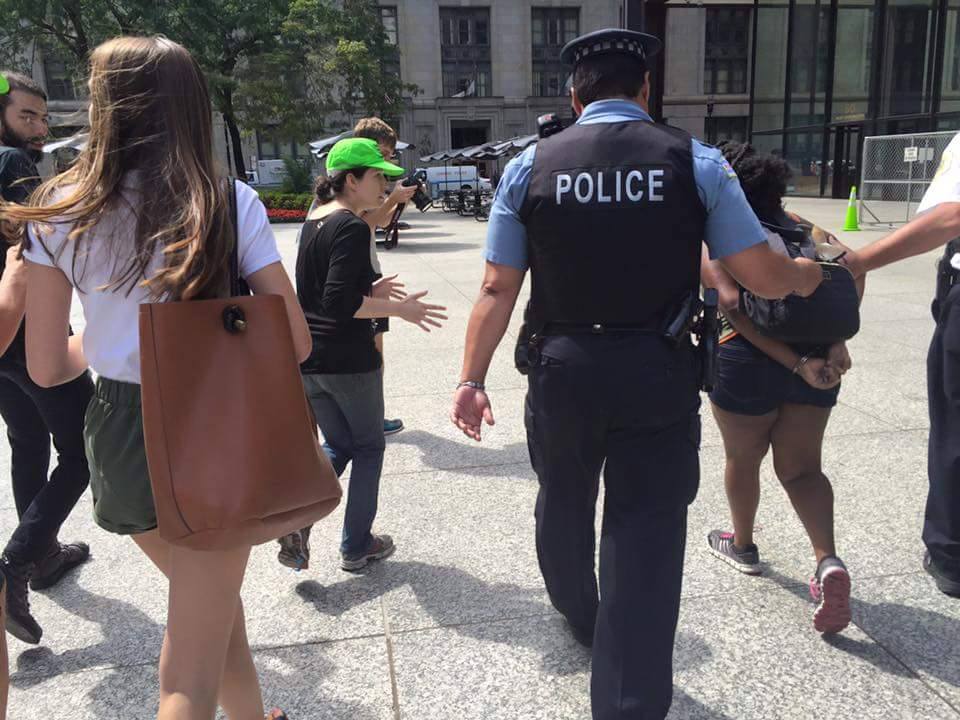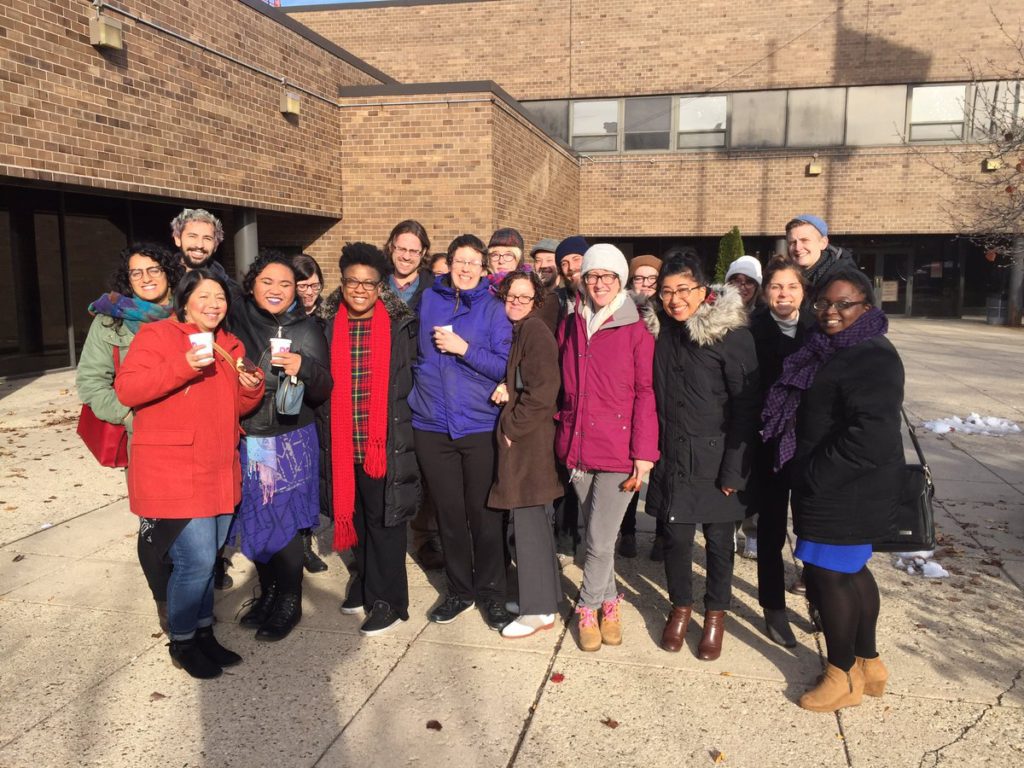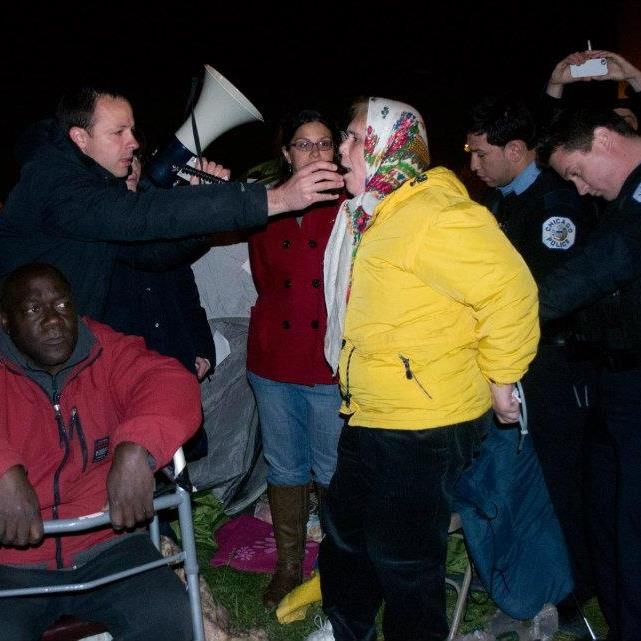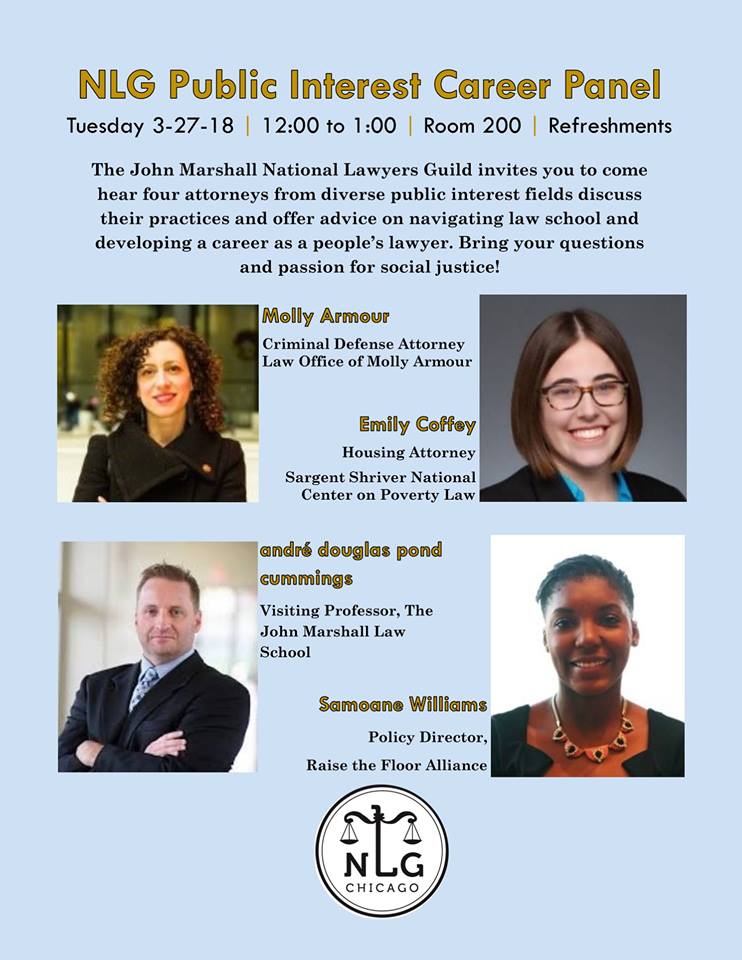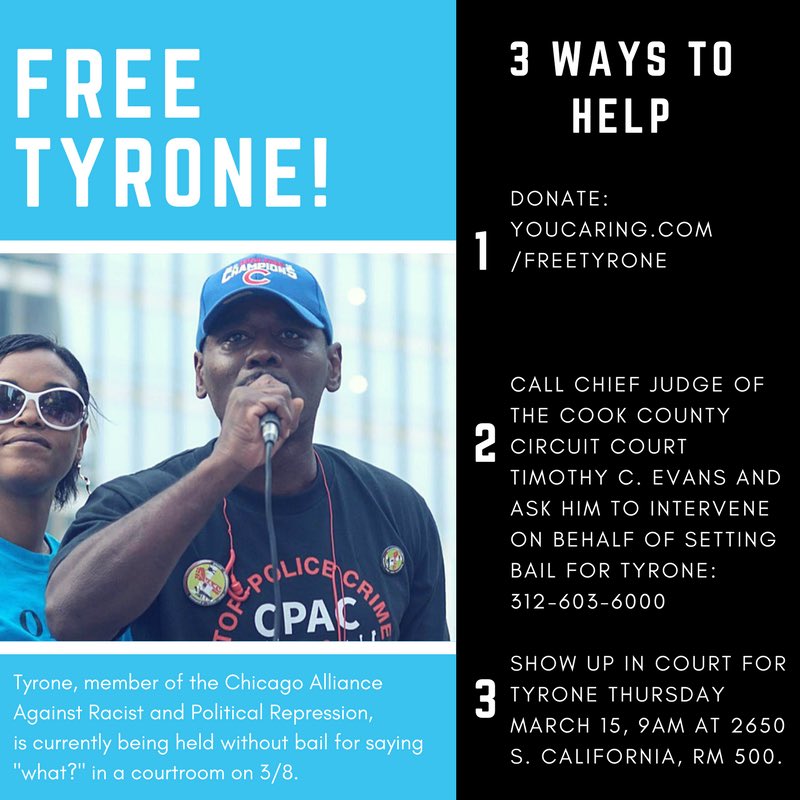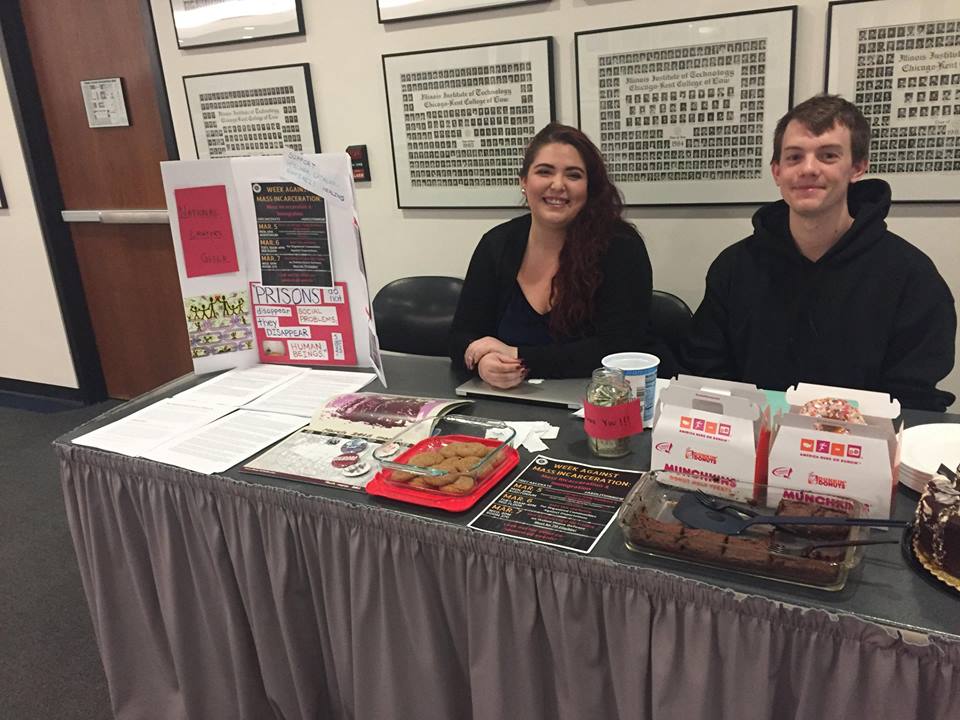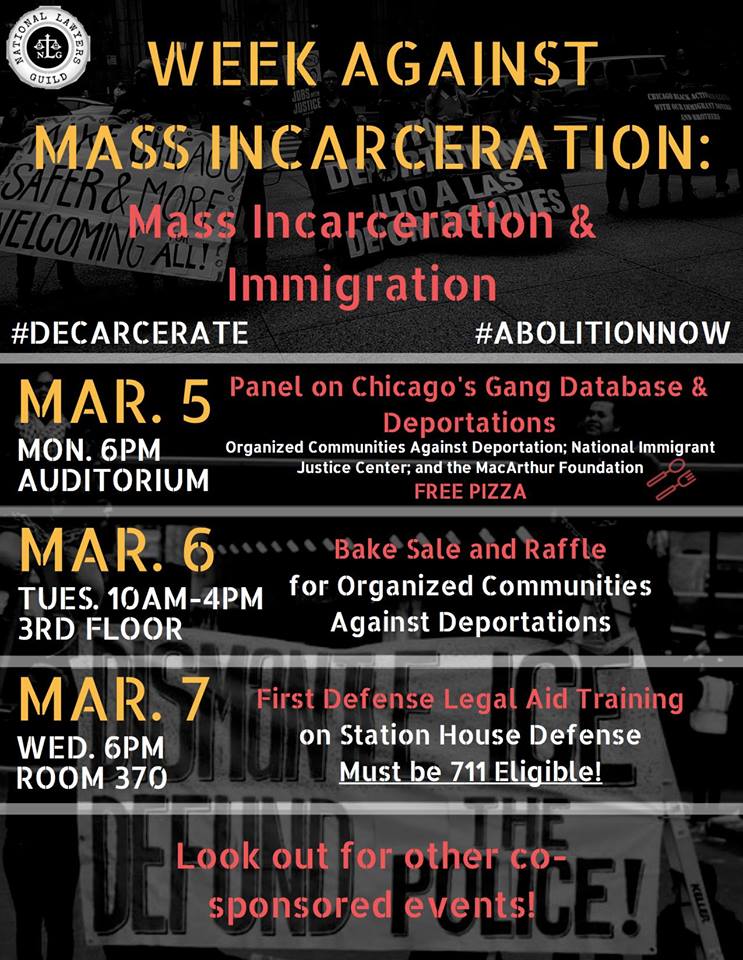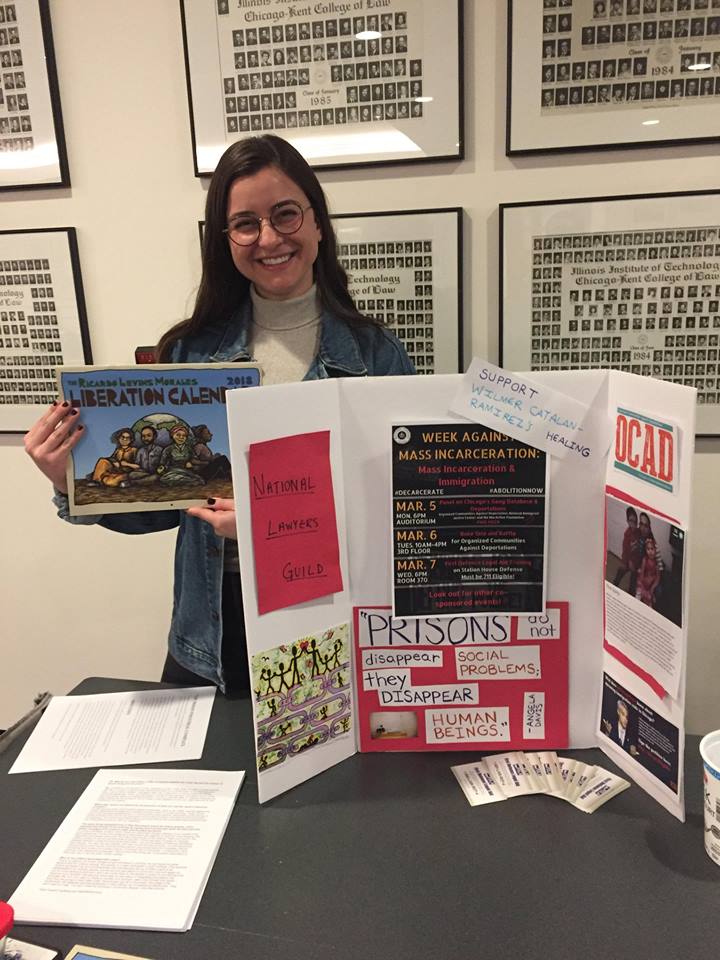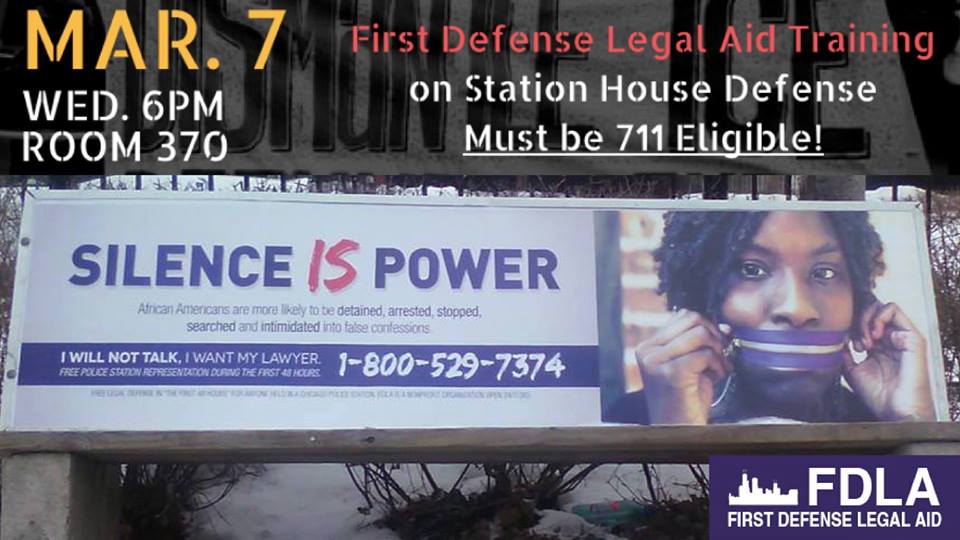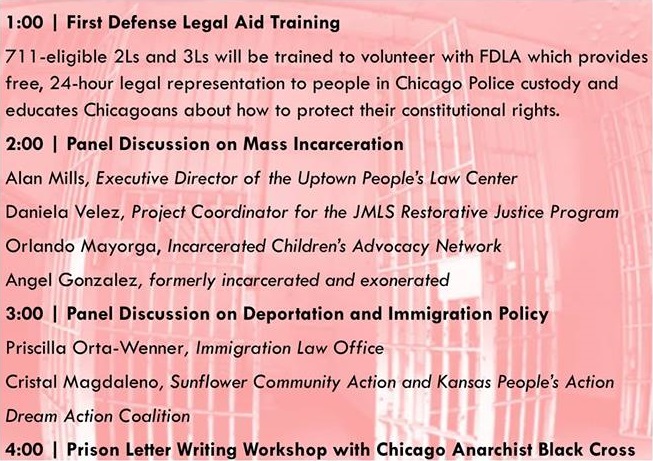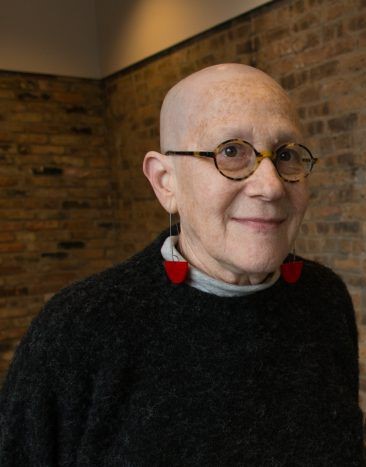
Ora Schub (The Chicago Defender by Sebastián Hidalgo)
On June 11, 2018, the Chicago activist community lost a beloved ally, colleague, and friend. Ora Schub, a former president for National Lawyers Guild Chicago, passed away after a long and courageous battle with cancer.
Ora was born and raised in Chicago and dedicated her life to activism, advocacy, and peace. As a leader in the Arab American Action Network (AAAN), Ora also supported human and legal rights delegations to other countries. Having worked as a criminal defense attorney and clinical law professor at Northwestern University, Ora helped organize the National Conference of Black Lawyers (NCBL).
Ora was known as one of the “grandmothers” of the city’s restorative justice movement. Together she and fellow activist Cheryl Graves helped many Chicago organizations learn and embrace restorative justice principles. Through Community Justice for Youth Institute – which they co-founded – Ora and Cheryl held restorative justice workshops and peace circle keeper trainings.
In a January 2018 interview with City Bureau reporters, Jenny Casas and Sarah Conway, Schub said, “if [holding peace circles] works, the circle creates a safe space where you can be vulnerable. Cause we can disagree with each other on opinions, but we can’t disagree on your story.”
A memorial for Ora will take place:
Saturday, August 25, 2018
4:30 – 7:30 pm
South Shore Cultural Center
7059 S. South Shore Drive
NLG Chicago’s board and members express our deepest condolences to Ora’s family and friends in the activist community. Rest in Power, Ora!
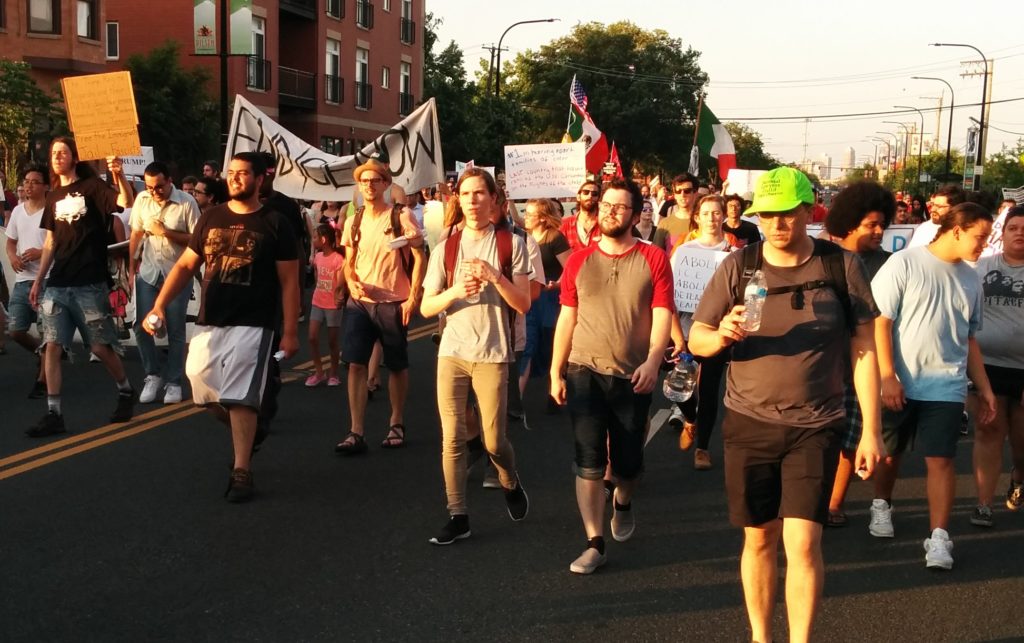
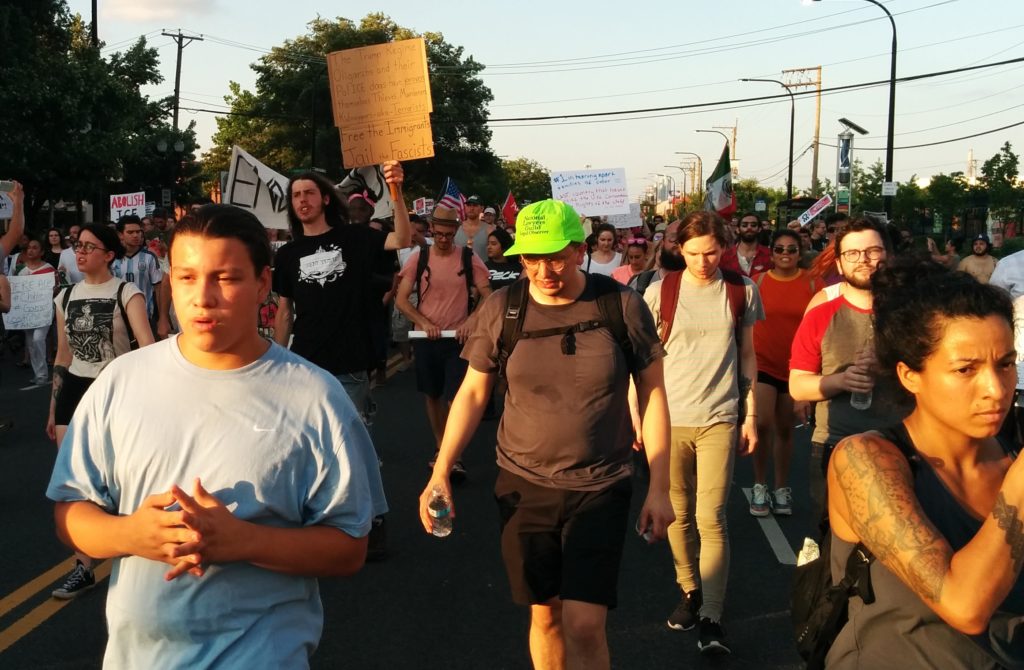
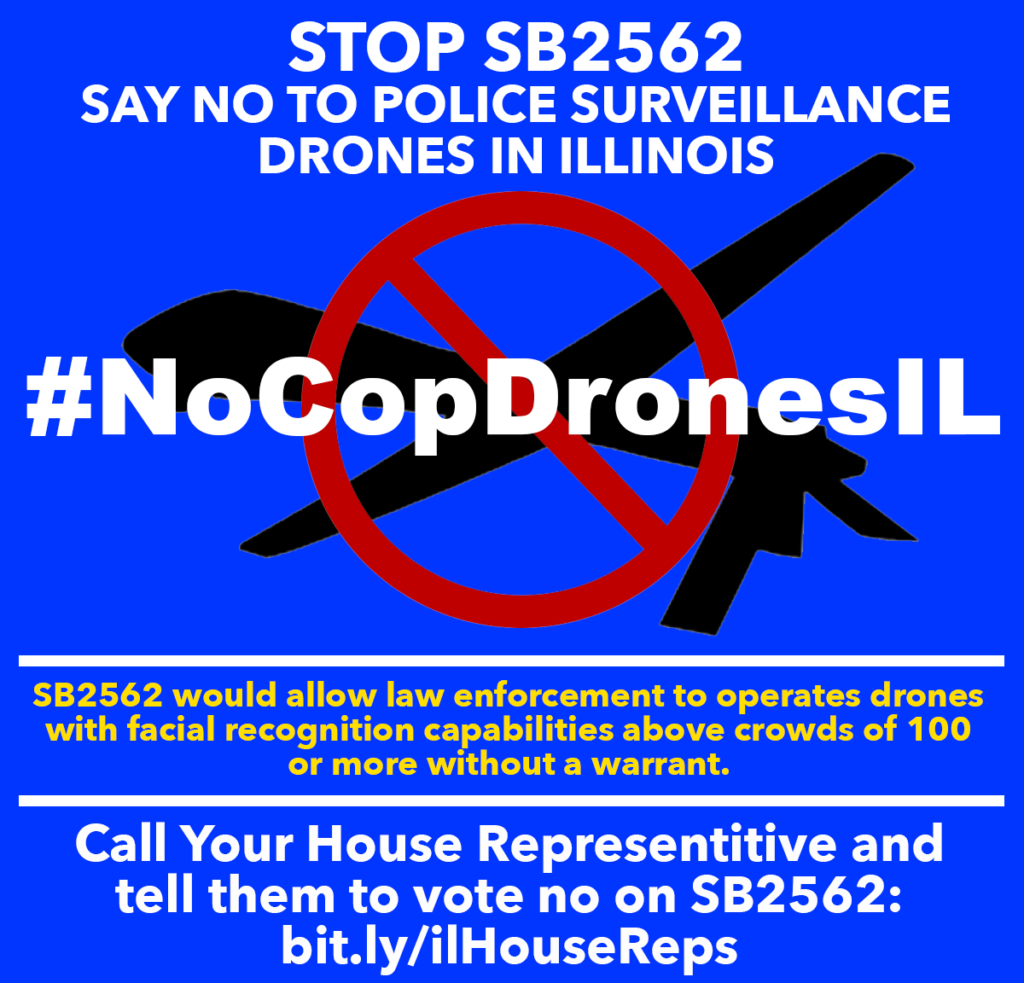
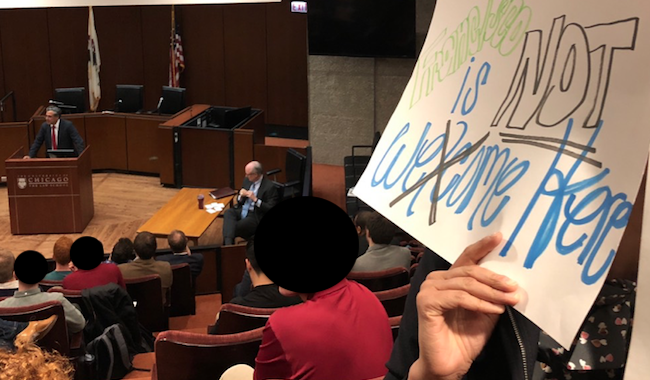

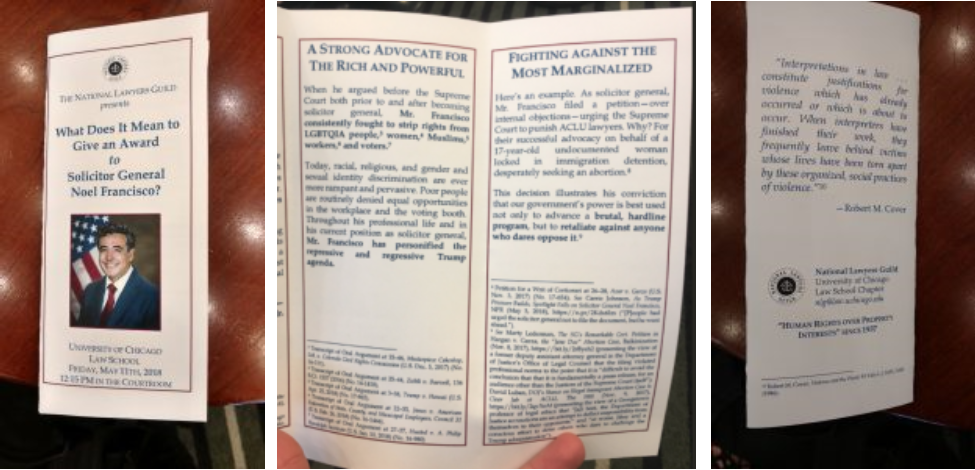
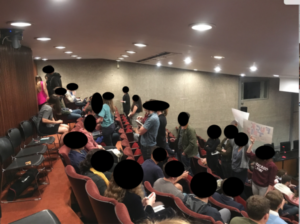 The Chairman of the Burke Society is now the new President of the Federalist Society, an unsurprising development given the almost complete overlap between these sets of student organizations. Other students saw this awards ceremony as another attack on the same targets: undocumented, Muslim, immigrant and LGBTQIA people who suffer as a result of Francisco’s insistence on defending the indefensible. However, the Federalist Society wanted to learn his tactics and normalize his advocacy. Upon the introduction of Francisco to the audience, approximately half of the students in the courtroom stood to turn their backs. Harried law school administrators asked students to lower their posters lest they obstruct the views of the audience. Some explained that they posed no obstruction, and remained standing.
The Chairman of the Burke Society is now the new President of the Federalist Society, an unsurprising development given the almost complete overlap between these sets of student organizations. Other students saw this awards ceremony as another attack on the same targets: undocumented, Muslim, immigrant and LGBTQIA people who suffer as a result of Francisco’s insistence on defending the indefensible. However, the Federalist Society wanted to learn his tactics and normalize his advocacy. Upon the introduction of Francisco to the audience, approximately half of the students in the courtroom stood to turn their backs. Harried law school administrators asked students to lower their posters lest they obstruct the views of the audience. Some explained that they posed no obstruction, and remained standing.